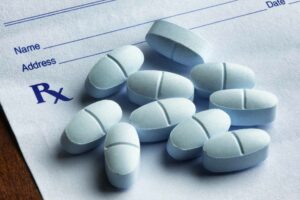- Culture
-
by Skippack Pharmacy
Addiction: A Disease, Not a Choice—Breaking the Stigma and Embracing Support

Addiction is a complex, chronic disease characterized by compulsive substance use despite harmful consequences. It is often misunderstood as a moral failing or a matter of willpower. However, addiction is fundamentally a disease, much like diabetes or heart disease, and it requires compassion, understanding, and support for those affected. This blog explores why addiction is a disease, the importance of supporting individuals struggling with addiction, and how naloxone can play a crucial role in saving lives.
Understanding Addiction as a Disease
Addiction is recognized by leading medical and mental health organizations as a disease of the brain. It involves changes to brain structure and function that affect decision-making, impulse control, and the ability to experience pleasure. Key points include:
- Brain Chemistry and Structure: Addiction alters the brain’s reward system, making it difficult for individuals to experience pleasure from everyday activities. Changes in brain chemistry and circuitry contribute to compulsive drug-seeking behavior.
- Genetics and Environment: Research indicates that genetics play a significant role in addiction risk, with certain individuals being more predisposed to developing addictive behaviors. Environmental factors, such as trauma, stress, and exposure to substance use, also contribute.
- Chronic Nature: Like other chronic diseases, addiction requires long-term management. It is not simply a matter of choosing to stop using substances; it involves ongoing treatment, support, and coping strategies.
The Importance of Support and Compassion
Supporting individuals with addiction is crucial for their recovery and well-being. Misunderstanding and stigma can prevent individuals from seeking help and accessing necessary resources. Here’s why support is essential:
- Promotes Recovery: A supportive environment can significantly impact an individual’s ability to recover. Encouragement from family, friends, and community members can help individuals stay engaged in treatment and rebuild their lives.
- Reduces Stigma: Stigma surrounding addiction can be a significant barrier to seeking help. By approaching addiction as a disease rather than a moral failing, we can foster a more supportive and non-judgmental attitude.
- Encourages Access to Resources: Providing support helps individuals access treatment options, including counseling, medication-assisted treatment, and rehabilitation services. It also involves advocating for policies that improve access to these resources.
Naloxone: A Life-Saving Medication
Naloxone, often known by the brand name Narcan, is a medication that can reverse the effects of opioid overdose. Just as an epinephrine auto-injector (EpiPen) is essential for managing severe allergic reactions, naloxone is a critical tool in preventing fatal opioid overdoses.
- How Naloxone Works: Naloxone quickly binds to opioid receptors in the brain, reversing the effects of opioids and restoring normal breathing. It can be administered via nasal spray or injection.
- Accessibility and Use: Naloxone is available in many pharmacies without a prescription and is also distributed through harm reduction programs. Training on how to use naloxone is often provided to those at risk of opioid overdose and their loved ones.
- Impact on Overdose Deaths: The availability and use of naloxone have been shown to significantly reduce opioid-related deaths. It is a vital component of harm reduction strategies and emergency response efforts.
Breaking the Stigma
To effectively support those affected by addiction, it is essential to break the stigma and foster a more compassionate approach. Here’s how we can contribute to this effort:
- Educate and Inform: Increase awareness and understanding of addiction as a disease through education and public health campaigns. Providing accurate information helps challenge misconceptions and promote empathy.
- Share Stories and Experiences: Personal stories from individuals who have experienced addiction can humanize the issue and demonstrate that recovery is possible. Sharing these experiences helps build connections and reduce stigma.
- Advocate for Policy Changes: Support policies that enhance access to addiction treatment and support services. Advocacy can lead to systemic changes that improve care and reduce barriers to treatment.
- Create Supportive Communities: Encourage and participate in support groups and community initiatives that offer help and understanding to those affected by addiction. Building a network of support fosters a more inclusive and compassionate environment.
Conclusion
Addiction is a disease that affects the brain and requires compassion, understanding, and support. Recognizing it as such and challenging the stigma surrounding it is essential for promoting recovery and well-being. Naloxone is a life-saving medication that plays a critical role in preventing overdose deaths, just like an EpiPen for severe allergic reactions. By supporting those affected by addiction and advocating for a more compassionate approach, we can make a meaningful difference in the lives of individuals and communities.
Additional Resources:
- American Society of Addiction Medicine. Definition of Addiction. Accessed July 24, 2024. https://www.asam.org/quality-practice/definition-of-addiction
- National Institute on Drug Abuse. Is Addiction a Disease? National Institutes of Health. Updated December 2020. Accessed July 24, 2024. https://www.drugabuse.gov/publications/research-reports/treatment/addiction-disease
- Volkow ND, Blanco C, Jeffries WL, et al. National Institute on Drug Abuse’s Role in the Opioid Crisis: Research, Treatment, and Prevention. JAMA Psychiatry. 2020;77(4):397-404. doi:10.1001/jamapsychiatry.2019.4534.
- National Institutes of Health. Naloxone: A Life-Saving Medication. Updated July 2022. Accessed July 24, 2024. https://www.nih.gov/news-events/nih-research-matters/naloxone-life-saving-medication
- Substance Abuse and Mental Health Services Administration. Naloxone. Accessed July 24, 2024. https://www.samhsa.gov/medication-assisted-treatment/treatment/naloxone
- Rudd RA, Aleshire N, Zibbell JE, Gladden RM. Increases in Drug and Opioid-Involved Overdose Deaths — United States, 2010–2015. MMWR Morb Mortal Wkly Rep. 2016;65(50-51):1445-1452. doi:10.15585/mmwr.mm655051e1.
- Rehm J, Mathers C, Popova S, et al. Global Burden of Disease Attributable to Alcohol, Tobacco, and Drug Use. Lancet. 2009;373(9682):2223-2233. doi:10.1016/S0140-6736(09)60754-8.